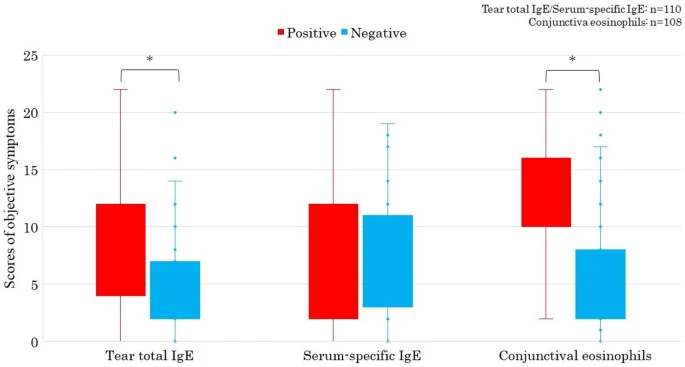Yamana, Y., Yamana, S. & Uchio, E. Sci Rep 14, 16235 (2024). https://doi.org/10.1038/s41598-024-67117-3
Abstract
 |
| Comparison of objective symptoms’ scores by JACQLQ ver1 between cases positive or negative for tear total IgE, serum specific IgE and conjunctival eosinophils |
No comments:
Post a Comment